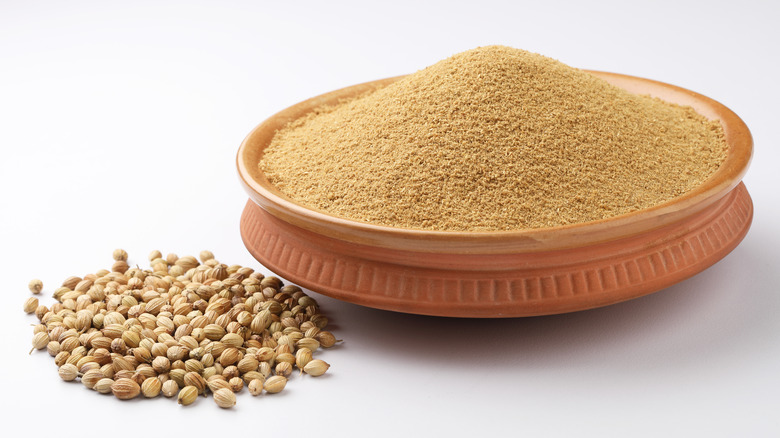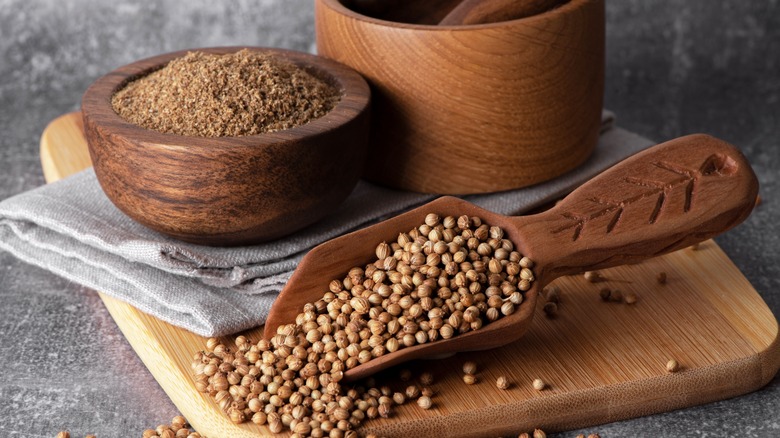The Mistake You're Making With Ground Coriander
We may receive a commission on purchases made from links.
Coriander, also known by the scientific name "Coriandrum sativum," is cultivated in many countries. It originated in Italy, and nowadays, it's commonly grown in China, India, and North Africa, among others (via Science Direct). However, while it's grown in many countries, it's not cultivated in Japan or the Americas.Oddly enough, in the U.S., the seeds are called coriander while the leaves are known as cilantro (per HealthLine).
There are many health benefits of eating coriander: it lowers blood sugar, benefits heart health, and it's rich in antioxidants crucial for our immune systems. Coriander is an essential element of Indian spice boxes, and it's most commonly used in Indian cuisine — although not exclusively. The floral seeds impart nutty and warm flavors to various dishes, while the earthy and lemony coriander powder is often used as a curry thickener (via BBC).
If you're a fan of curries, you're probably already used to the intense flavors of this aromatic herb. And if you use it a lot, especially in its ground form, you might not even be aware that you're making a common mistake with the spice.
Ground coriander loses its potency faster than other spices
The famous Delhi-born cook Madhur Jaffrey talked to MasterClass and revealed one mistake you're probably making with ground coriander. "If ground coriander is left to sit around, it turns to sawdust faster than most spices," said Jaffrey. The solution is to grind the seeds with a mortar and pestle, and use small quantities — only as much as you need for the dish you're making. Once freshly ground, use it in anything from curries and okra stew with shallots to Northern-Indian style chickpeas.
In order to get the most flavor out of coriander seeds, BBC Good Food recommends dry-frying them in a pan over medium heat while constantly stirring. Once the fragrant aroma has been released, it means that the seeds are ready to be removed from the pan and left outside to cool. It's then up to you to decide whether to use whole seeds or to crush and grind them into a powder.
And after that, you may wonder how to store the spice properly. Spice Jungle reveals that ground spices will keep their potency for a year, and that herbs and spices are best kept in airtight containers, and in dark and cool places. Unless your spices are vacuum-sealed, don't keep them in the fridge because humidity can change their flavor and appearance. At the same time, mold or bacteria can also appear due to humidity issues.

